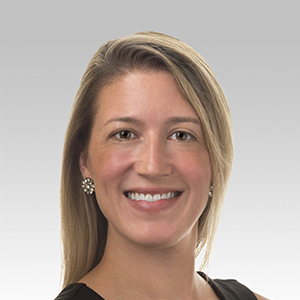10 Signs It’s Time to See a Cardiologist
Published February 2020
Risk Factors and Symptoms You Shouldn’t Ignore
Your heart is one hard-working muscle, beating more than 100,000 times a day. It’s important to take preventive care of this crucial organ.
Heart disease is the leading cause of death in the United States and worldwide. For people without known heart disease, it can be tricky to know when to see a cardiologist. Here are 10 reasons to call a heart specialist.
- You experience chest pain.
- You have high blood pressure.
- You have shortness of breath, palpitations or dizziness.
- You have diabetes.
- You have a history of smoking.
- You have a history of high cholesterol.
- You have chronic kidney disease.
- You have a family history of heart disease.
- You have peripheral arterial disease.
- You’re inactive and planning to start an exercise routine.
Chest pain is one of the hallmark signs of a heart problem. While there are other causes of chest pain that are not related to the heart, chest pressure that occurs or worsens with activity is particularly concerning, as it can be a sign that the heart may not be getting enough blood. A cardiologist can help determine the cause and the appropriate treatment plan. Chest pain can also be a sign of a heart attack, which is a life-threatening emergency. Know the signs and call 911 if you think you are having a heart attack. Remember that signs can be different for men and women.
Blood pressure is the force of the blood pushing against the artery walls. Chronically elevated blood pressure causes the heart to work harder to circulate blood and increases the risk of heart attack and stroke.
A cardiologist can determine if a heart condition is the cause. These symptoms may be a sign of abnormal heart rhythm or coronary artery disease.
There is a strong correlation between cardiovascular disease and diabetes. Poorly controlled blood sugar affects how your blood vessels function and greatly increases your risk for developing coronary artery disease. A cardiologist can work with your primary care physician and help determine what treatment or prevention strategies can lower your risk.
Smoking is one of the major preventable risk factors for heart disease and can contribute to high blood pressure and cancer risk. Get tips on quitting.
Cholesterol is a fatty substance found in a number of foods, and is also made by your liver. High cholesterol can contribute to plaque in the arteries. One of the ways you can lower your cholesterol is by eating a healthy diet. Your physician may prescribe medications to treat cholesterol that also help to lower your risk of heart attack. Talk to your cardiologist about heart-healthy foods and monitoring your cholesterol to reduce chances of heart disease.
If your kidneys don’t function properly, your risk for heart disease increases. Kidney disease is tied to high blood pressure and arterial disease. A cardiologist can discuss how your condition affects your heart and help you reduce your risk for heart disease.
Certain types of heart disease can be genetic. If a relative has had early-onset heart disease (under age 55 in men and 65 in women), then a cardiologist can help determine how this affects your risk, and may order testing or recommend preventive strategies.
Arteries are the blood vessels that deliver oxygen-rich blood from your heart to the rest of your body. If you have known disease in other arteries, such as the leg arteries or the large blood vessels to the brain (carotid arteries), you are more likely to also have coronary artery disease. A cardiologist can discuss whether other testing is warranted as well as treatment options.
Exercise has a number of health benefits, and plays a key role in the prevention and treatment of heart disease. However, certain heart conditions can make exercise unsafe. If you’re considering a new workout regime after being inactive, or have a number of the risk factors for heart disease as listed above, you should consult your physician first. One marathon runner credits this step with saving his life.
If you have any of these symptoms or risk factors, it could be time to see a cardiologist. Northwestern Medicine Bluhm Cardiovascular Institute offers comprehensive cardiovascular clinical programs in Chicago and the suburbs.






